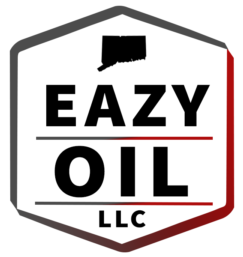
12 Nov What are Heating Oil Additives and should I use them in my home heating oil?
Posted at 20:13h in Uncategorized
Heating oil additives are chemical compounds added to heating oil to enhance its performance, improve system efficiency, and prevent certain issues associated with fuel storage and combustion. They can be beneficial, especially in colder climates like Connecticut, where low temperatures can affect heating oil quality and flow.
Types of Heating Oil Additives
- Anti-Gelling Agents
- Heating oil can thicken and form wax crystals (gel) in extreme cold, potentially clogging fuel lines and filters. Anti-gelling additives lower the fuel’s pour point, helping it remain liquid and flow more easily through the system.
- Stabilizers and Antioxidants
- These additives help prevent oxidation and degradation of heating oil during storage, reducing sludge buildup and maintaining oil quality over time. They are helpful if you have a full tank of oil that will be stored for a long period.
- Biocides
- Biocides prevent microbial growth (such as bacteria and fungi) in the fuel tank. Microbes can create sludge that clogs filters and damages your system. Biocides are especially useful if your tank is older or if you store oil for long periods.
- Water Dispersants
- Condensation can cause water to collect in your oil tank, promoting rust and microbial growth. Water dispersants help break down water molecules in the oil, preventing rust and sludge buildup.
- Detergents
- Detergent additives keep the fuel system clean by preventing deposits from forming in the tank, fuel lines, and burner nozzles. This can improve combustion efficiency and reduce system wear and tear.
Benefits of Using Heating Oil Additives
- Improved Efficiency: Additives can improve combustion, making your heating system burn oil more efficiently and generate more heat.
- Lower Maintenance Costs: Additives prevent sludge buildup and microbial growth, which can lead to fewer repairs and filter changes.
- Extended Equipment Life: By keeping your system clean and reducing wear, additives can help extend the lifespan of your heating equipment.
- Better Cold Weather Performance: Anti-gelling additives are particularly helpful in preventing system blockages during Connecticut’s cold winters.
When to Use Heating Oil Additives
Consider using additives if:
- You store heating oil for long periods. Additives stabilize the oil, prevent sludge buildup, and reduce oxidation.
- You live in a very cold area. Anti-gelling additives help keep your system running smoothly even when temperatures drop.
- You have an older oil tank or system. Older tanks are more prone to issues from rust, sludge, and microbial growth.
- You notice frequent issues with clogging or system efficiency. Additives might help if your system frequently requires filter changes or has lower-than-expected efficiency.
Things to Keep in Mind
- Compatibility: Check if the additive is compatible with your heating oil type and equipment. Some additives are designed specifically for certain types of oil or equipment.
- Follow Instructions: Only use the recommended amount; overuse can potentially harm your system.
- Consult a Professional: If unsure, consult with an HVAC professional or your oil supplier. They can recommend additives based on your system’s age, condition, and local climate.
Final Recommendation
While heating oil additives aren’t strictly necessary for everyone, they can be quite beneficial in colder climates and for homes with older tanks or stored oil. For Connecticut winters, anti-gelling additives and stabilizers are often a good idea to improve efficiency and prevent winter-related issues.




